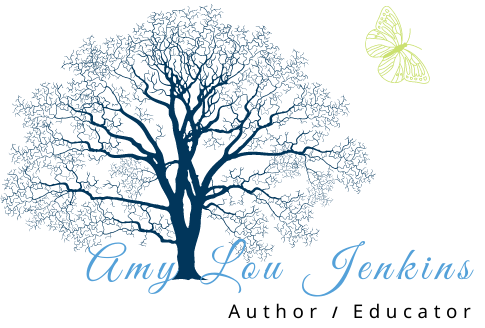
Authors Plan to Meet Their Writing Goals
Say Goodbye to Roadblocks and Hello to Productivity
On your path to authorship, you’re going to encounter roadblocks. You will place some of those roadblocks yourself, but as you become aware of your self-sabotage, you can change your thinking and actions. Authors have an plan and yours will guide you to achieve your writing goals.
For many writers, signs of resistance and obstacles cause them to give up, and they feel as though the writing is not worth the effort. Most live with regret.
Why Do We Doubt Ourselves?
Sometimes, we feel like we are extraordinarily talented, other times we feel like frauds. We fiddle away time or feel we don't have the writing chops to finish our projects. Our fear of failure can lead us to abandon our goals. Anytime we step outside our comfort zone, we will face fears. Being uncomfortable is a precursor to success. In the War of Art, Steven Pressfield makes a persuasive argument that resistance signals amazing possibilities:
“ Rule of thumb: The more important a call or action is to our soul’s evolution, the more Resistance we will feel toward pursuing it.”
Have you been thinking about that writing project for a while? What’s stopping you? Resistance.
How Do Authors Counter Resistance?
Success planning is key. While there are some obstacles that you can’t predict, there are plenty that you should be able to see coming. For example, you probably know already if you tend to be excited about new ideas, but then fall into dread about finishing a project. You might know that you must give something up to make room for writing. What timewaster can you plan to chuck so that you can achieve your writing goals? If you think about what can go wrong on your path to success, you can come up with strategies.
Your inner child will show up to attempt to stop you from being uncomfortable. Plan for this. A plan may be as simple as talking to your inner child when they attempt to take control of your writing time.
"No," you tell that punk
- The TV stays off.
- You can live without stopping for a snack.
- The phone is set to 'do not disturb.'
- I know how to get unstuck (read Six Ways to Get Unstuck).
No, I'm not going to give up. I can write this piece. In fact, I'm the only one who can.
Obstacles Are Normal
You’ll want to inspect your writing strategies critically. If you’re imagining all will go as expected, you’ll end up feeling defeated when obstacles rear their heads. Once you have a projection of the kinds of obstacles you may face, develop plans on how to address them.
- Could you be called into work?
- Will the kids bother you?
- What will you do about the cat lying on your keyboard?
- Will your back pain flare up from too much chair time?
Your list will fit your situation. Yet, for all of us, obstacles will come. When they do, tell yourself that you expected this. Because you did. You know obstacles are an expected part of the process on the way to achieving your writing goals.
Can you write for four straight hours on Saturday? If you can’t (and most writers can't until they are very experienced), no problem. Change your plan. Can you write for a half-hour five times a week?
If you’re worried about not meeting your writing goals, set a writing goal that is so easy to reach, you won’t be tempted to avoid writing. Set your working calendar with the time and day you will write and set a goal of a minimum of 200 words a writing day. While you will exceed the goal, you don’t have to. If you write 200 words a day, you can write a draft of a book in less than a year. Chances are you will write much faster, but it will be ridiculously hard to say you don’t have time to write 200 words a day.
Plan to Achieve Your Writing Goals
Whatever obstacles pop up, you can develop a plan to edit, publish, and market when you schedule time for
- reading and study,
- writing and editing, and
- publishing and marketing.
By having scheduled plans in place, you’re going to be a lot more confident and a lot more likely to succeed. Plan for obstacles and plan to overcome them. As a result, you won’t quit and won’t be easily dissuaded from achieving your goals. If you goof up or life becomes even more complicated than you expected, that's normal. No one bats 100%. Keep swinging. Expect to adapt your plan to your life. Next week may require an altered plan.
Getting Started Author Action Plan, What -
- is my next writing goal?
- knowledge/skill/help do I need to achieve this goal?
- time do I need to schedule to complete this project?
- are 5-10 steps I need to take to achieve this goal?
- will I say “no” to make room for writing?
- will I do when I’m not perfect in executing my plan?
A final point about the kid in you who wants to play: Let that kid play. Where there are definitely times to let the parental voice take charge, the voice, talents, and creativeness of that kid is your fount. So let's add to that action plan:
- How will I nurture my childhood dreams and playful instincts?
This action plan may take a dedicated half-hour to an hour to complete, but the investment will pay off.
Your book isn't going to write itself.
Download our free "writer-at-work"
door hanger
and subscribe to our newsletter. We want to help you get your story out into the world.
Amazon affiliate links might earn a small commission at no cost to you. Thank-you!


